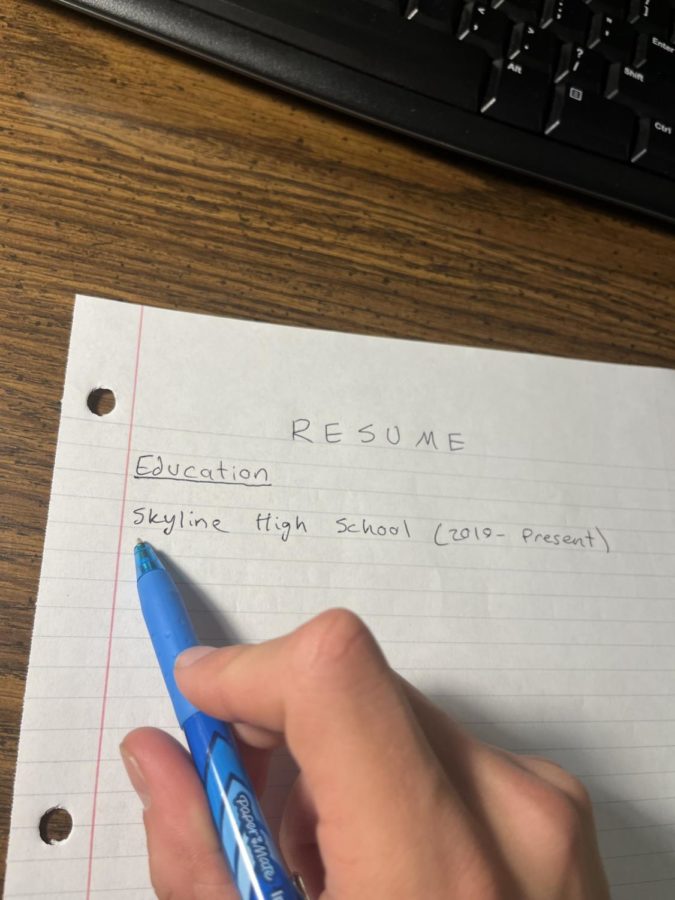Whether you’ll be walking across the stage at graduation this year or are just starting your high school journey, a resume is very important and something you will definitely need to have as you start applying for jobs, colleges, and other opportunities. Once written, your resume is a living document that will stay with you forever, accumulating more information as you continue to gain experience throughout your life. But why is this document so important? And how do you write one? Before you can answer that question, you need to know what a resume is and what it does for you.
So what exactly is a resume? According to Skyline Journalism and English teacher Dr. Blais, a resume is “…a professional statement of your experience, ideally [making] it clear to someone not only what you’ve done but what you’re trying to do.” Anything you have accomplished so far in your high school career would go on your resume. For example, if you have a job at a coffee shop, play on the soccer team, and have earned a 3.7 GPA in school, all of these would go on your resume. These things would show a future employer or college not only that you are a well rounded student, but that you still make time for school as well.
Whether you think you will or not, it is very likely that you will be asked for a resume sometime during your high school career. Whether that be for your first job or a college application, you need to have it ready and prepared for when the time comes that you need it. It is important to build a resume early on in high school “…so [students] can understand what it is, utilize it, and then build on it,” remarked Mr. Shannon, lead teacher of Skyline’s BMIT magnet. “If you’re going in for an interview, [and] brought in a resume, you would stand out.”
Once you’re ready to start writing your resume, it’s important to remember a few tips. First, remember to separate your sections by category. For example, you would have a separate section for your academic accomplishments and your professional accomplishments. Also, it’s important to demonstrate what you’ve done with numbers, as it stands out more to the reader. For instance, it’s more impressive to see “raised $1,000 for the local animal shelter and earned a 3.8 GPA” rather than “I raised money and did well in school.” Finally, remember to be as descriptive as possible when writing your resume. If you had a job as a cashier at a local store, it’s more appealing to the person reading your resume if they saw things such as “handled customer transactions, helped with item returns, and reported sales to the manager” rather than something such as “collected payments.”
Remember – your resume is a living document. This means that it’s important to update it regularly to keep up with your latest achievements. How often should you update it? “As a student, I would update it every three months,” said Shannon. “It should be a document that you can continue to edit.”
As a senior who has now written and edited my own resume, I’ve learned a lot. I leave you with this: when writing your resume, take a minute to look back on what you’ve accomplished. Be proud about all you’ve done so far! And while you’re at it, congratulate yourself on completing this milestone to a successful future.








